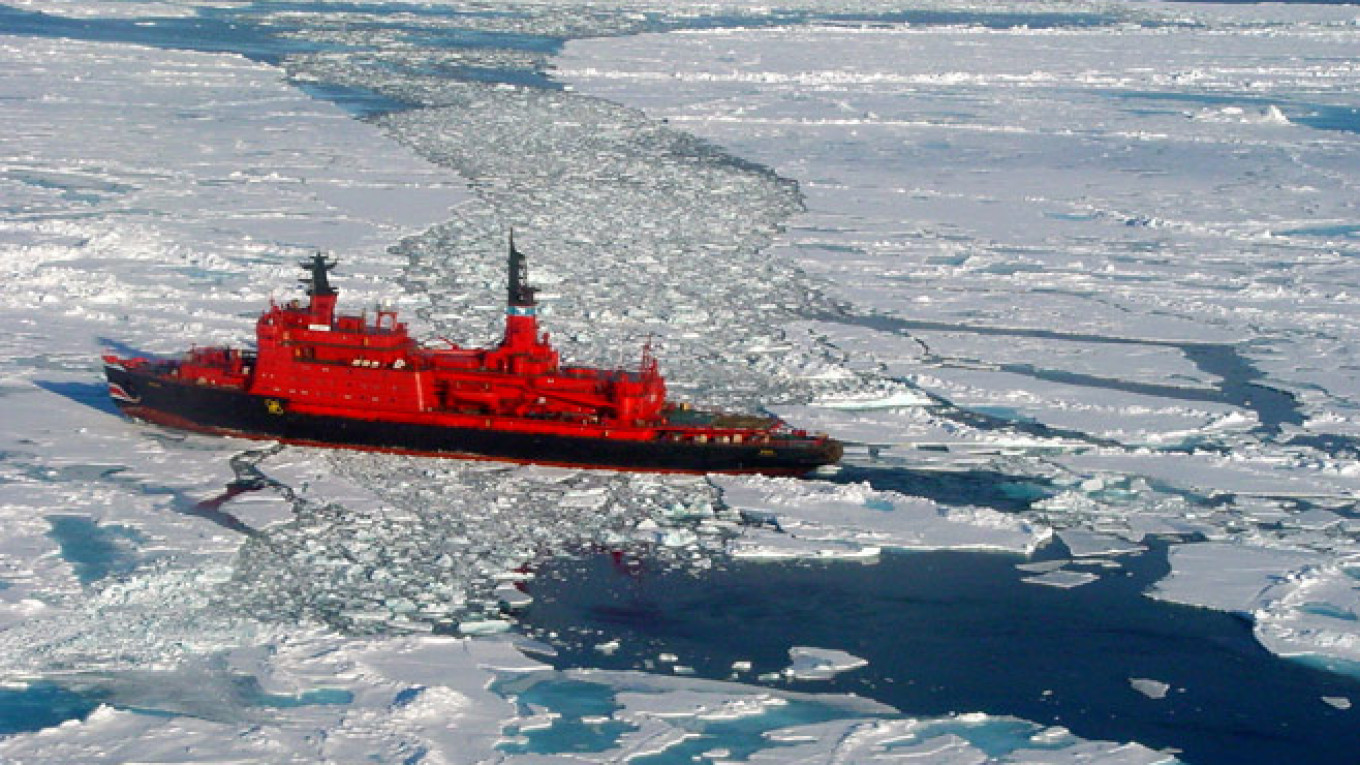Predictions of a catastrophic Arctic future will not be a reality. Instead, the Arctic is shaping up to be a region of international cooperation. In August, Russia submitted their revised Arctic claim — sparking widespread calls of a new Cold War. However, given current tensions, it is all but impossible to view Russia's claim for what it really is. Instead, the imperialist and expansionist narrative is further fueled — signaling a general misreading of Russian Arctic ambitions.
The apparent militarization of the Arctic is merely a process of normative securitization. Arctic rim powers are meeting increased activities in the region with standard steps to ensure the security of their vast exposed borders.
Yet, Russia reprises its Cold War role and is cast as the villain of the Arctic narrative. This is despite having an Arctic security strategy not too dissimilar from the other Arctic powers. In fact, it could be argued that since the Cold War the Arctic has undergone systematic demilitarization. Today, military hardware isn't on par with the Arctic's Cold War levels. Discussion of Russia's 'rapid' militarization is misleading, as Russia's Arctic military might isn't anything new.
According to the U.S. Coast Guard, Russia has always had the Arctic military advantage. It's never been an even playing field. In 1970, Russia had 32 icebreakers, in 2000 it had 37 and in 2015 it has 52. Dwarfing the U.S. fleets — 10 in 1970, five in 2000 and mere six in 2015. Historically, Russia is the Arctic's leading military power in terms of hardware and capability. The U.S. is still playing catch up and should conflict ever emerge, the U.S. is quite simply not equipped to challenge.
Communication between the Arctic Five (A5) powers is relatively open. The region's central institution, the Arctic Council, is mandated to discuss just about everything except strategic/military affairs. As such, A5 cooperation is thriving in the environmental and scientific areas. Furthermore, A5 submissions to the United Nations Convention on the Law of the Sea (UNCLOS) in terms of specific Arctic stakes points to the states following international law.
Any overlapping territorial claims are unlikely to be ruled on by UN — instead entrusted to the A5 to resolve among each other. Such cooperative precedent exists between Russia and NATO member Norway in the Barents Sea. Tales of looming A5 clashes are unfounded and destructive.
A5 powers accept the Arctic as a long-term challenge and are taking advantage of this to strengthen cooperative foundations. In the short-term, forces beyond the A5 challenge Russian Arctic strategy. Sanctions as punishment for the Kremlin's involvement in the Ukraine conflict curbed Russia's ability to source investment and technology to access the offshore Arctic. Russia's current situation is further compounded by the oil price dive of 2014.
In fact, economically, the Arctic isn't viable for anyone in the short-term. Market forces are busy with the shale revolution, and bracing for the influx of previously sanctioned Iranian oil. Both likely to keep the oil price below $80 a barrel till late 2016. The Arctic energy opportunity is long-term — 15 years away at best.
Today, Arctic resources aren't competitive enough for the global market. Yet this reality isn't detrimental to the long-term Arctic game. Environmentalists recently celebrated Shell's apparent Arctic exit when it announced it was ceasing work on its offshore Alaska venture. However, there is no exit, Shell's Arctic gambit has merely been put on ice.
The announcement demonstrates the complexities of Arctic exploration. Shell's decision was spurred by a remaining short season for drilling — limited by harsh operational circumstances — as well as the low oil price. Shell's announcement surprised few for it was a commercially sound decision to halt operations. Shell will return to its Alaskan venture with an extended lease when oil prices bounce back.
International Arctic interest — driven increasingly by China — will keep the Arctic 'great game' dialogue alive. Not only will Arctic shipping routes transform global transportation, the reality is the world will remain reliant on fossil fuels for the foreseeable future. With 30 percent of the world's remaining natural gas and 13 percent of its oil located in the Arctic — it is clear that the resources will be required.
Realistically, the key challenge of the Arctic has nothing to do with a resource clash or starving off the new Cold War between Russia and the U.S. The global challenge sits around how to exploit Arctic resources safely and sustainably. The potential for an oil spill is a central threat to the Arctic. Furthermore, vessels must be able to navigate Arctic shipping routes safely and efficiently. These two challenges will require A5 powers to rely heavily on a cooperative approach to the region. Behind closed doors it would appear those discussions are very much under way.
Climate change is opening up the Arctic and our global energy insecurity is propelling interest. Good governance of region must be a priority for the A5 powers. Yet, good governance is an impossible feat if the West further isolates the chief Arctic power. This is not constructive for the Arctic narrative. Russia is the leading A5 power — by way of sheer geography. Pre-existing notions of Russia can not be applied to the Arctic. Continuing to do so will simply force the region into a strategic fog.
The Arctic's future will largely hinge on the next U.S. administration's ability to bring Russia in from the cold. The Arctic is a level playing field with each of the A5 powers holding a stake. Those stakes overlapping will no doubt be negotiated between the A5, for that is in their communal interest. Attempts to isolate Russia from a region it considers not only to be the cornerstone of its economic future, but strategically significant to its international standing, will backfire greatly. Such efforts will merely serve to back the Kremlin into a corner it will most definitely fight its way out of.
It is of grave importance that the Arctic is protected from Ukraine narrative — the Arctic dialogue with Russia must be kept open.
Elizabeth Buchanan is manager of the China Economy Program at the Crawford School of Public Policy, Australian National University.
A Message from The Moscow Times:
Dear readers,
We are facing unprecedented challenges. Russia's Prosecutor General's Office has designated The Moscow Times as an "undesirable" organization, criminalizing our work and putting our staff at risk of prosecution. This follows our earlier unjust labeling as a "foreign agent."
These actions are direct attempts to silence independent journalism in Russia. The authorities claim our work "discredits the decisions of the Russian leadership." We see things differently: we strive to provide accurate, unbiased reporting on Russia.
We, the journalists of The Moscow Times, refuse to be silenced. But to continue our work, we need your help.
Your support, no matter how small, makes a world of difference. If you can, please support us monthly starting from just $2. It's quick to set up, and every contribution makes a significant impact.
By supporting The Moscow Times, you're defending open, independent journalism in the face of repression. Thank you for standing with us.
Remind me later.








